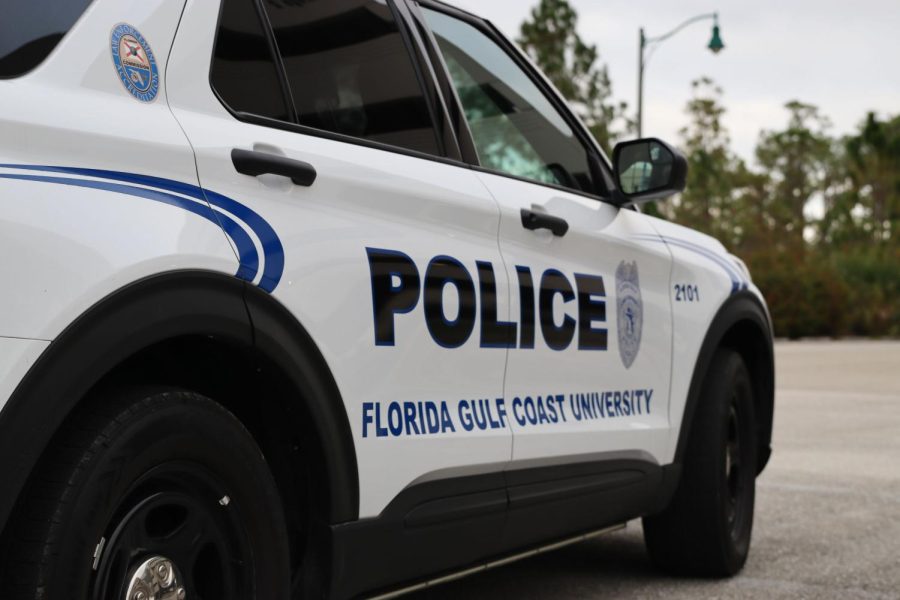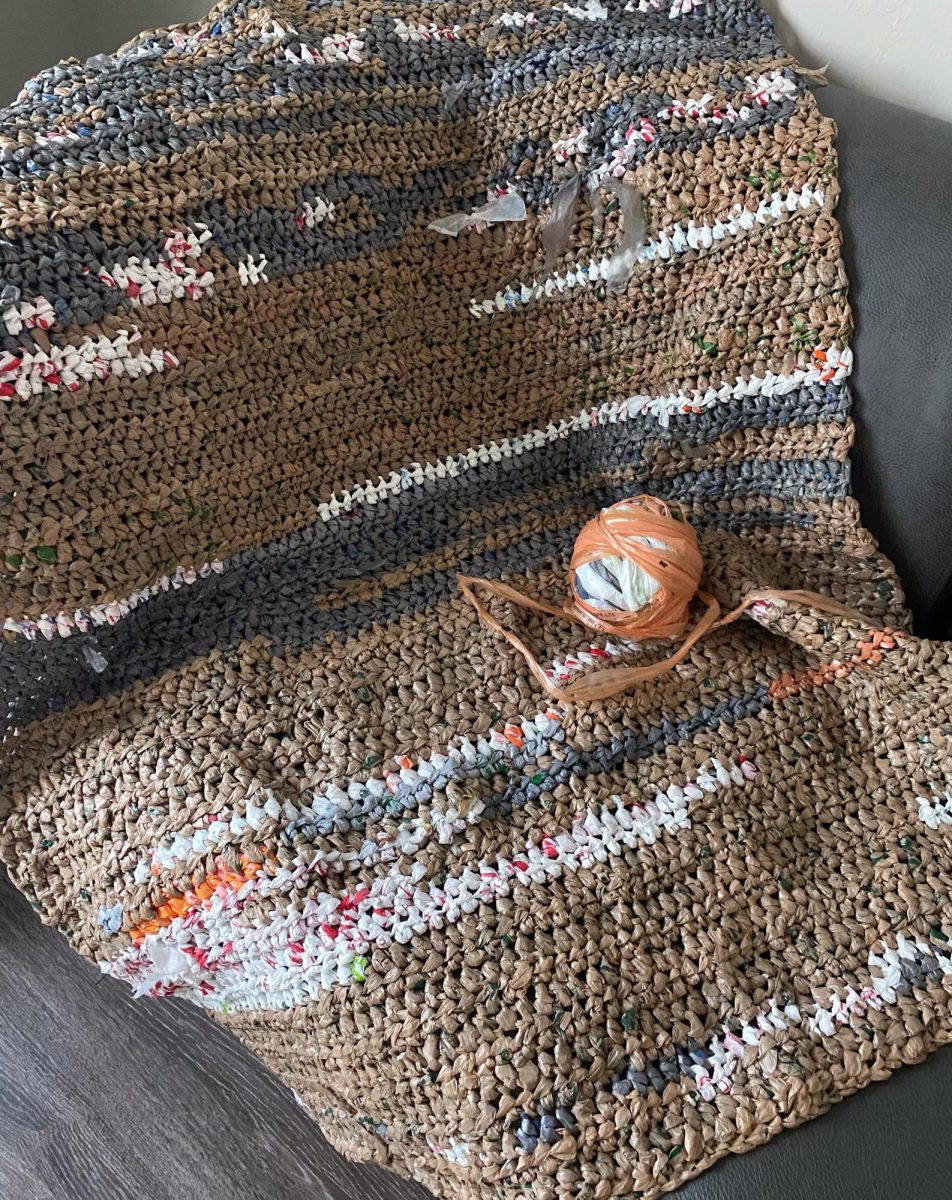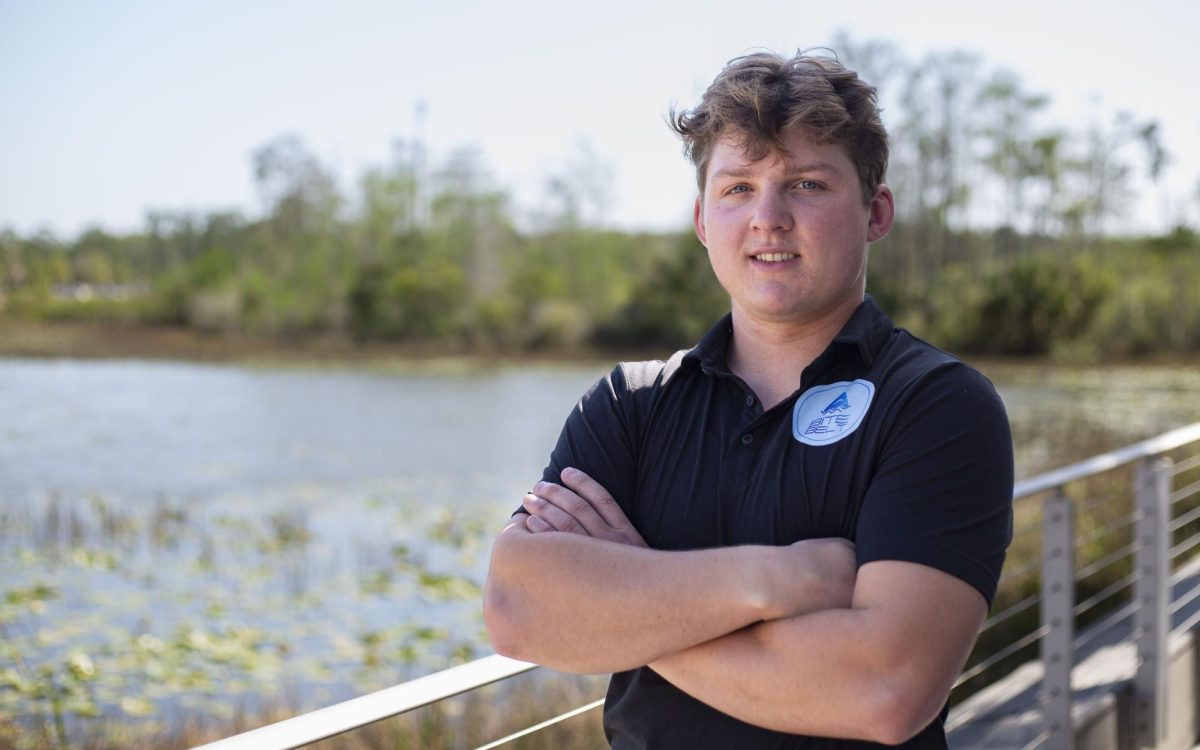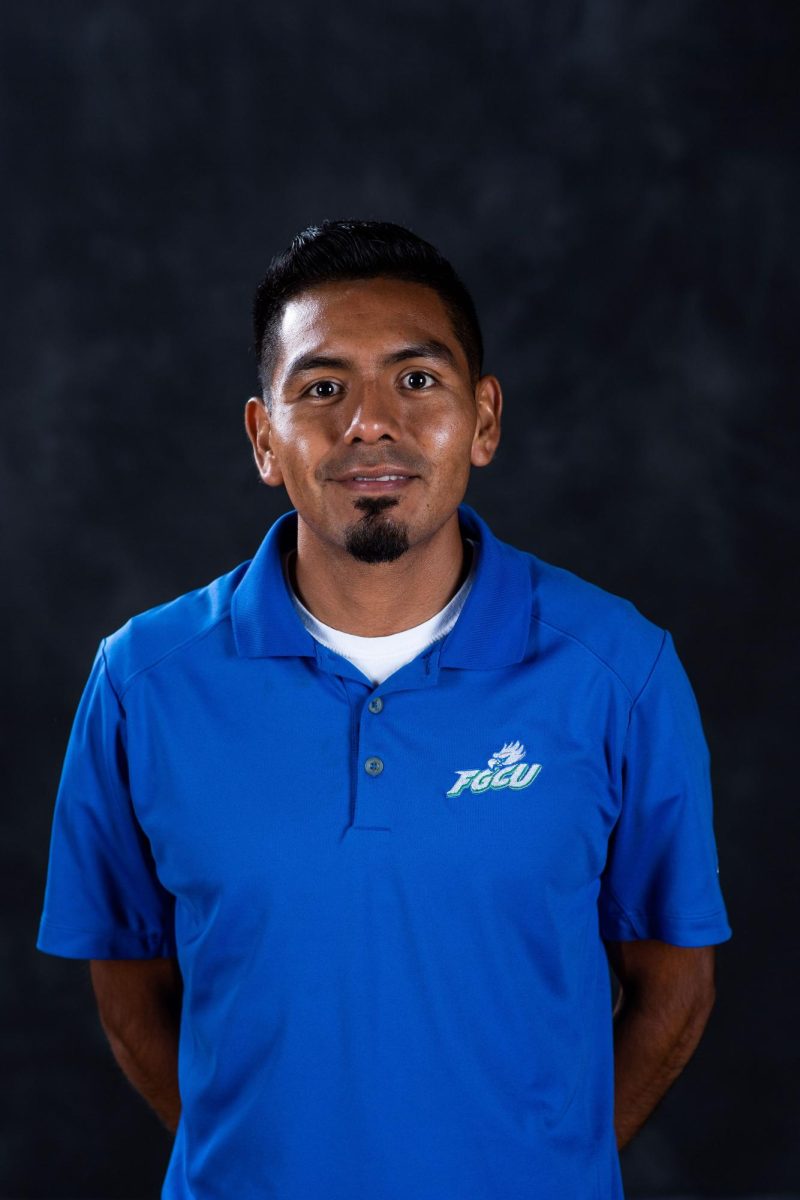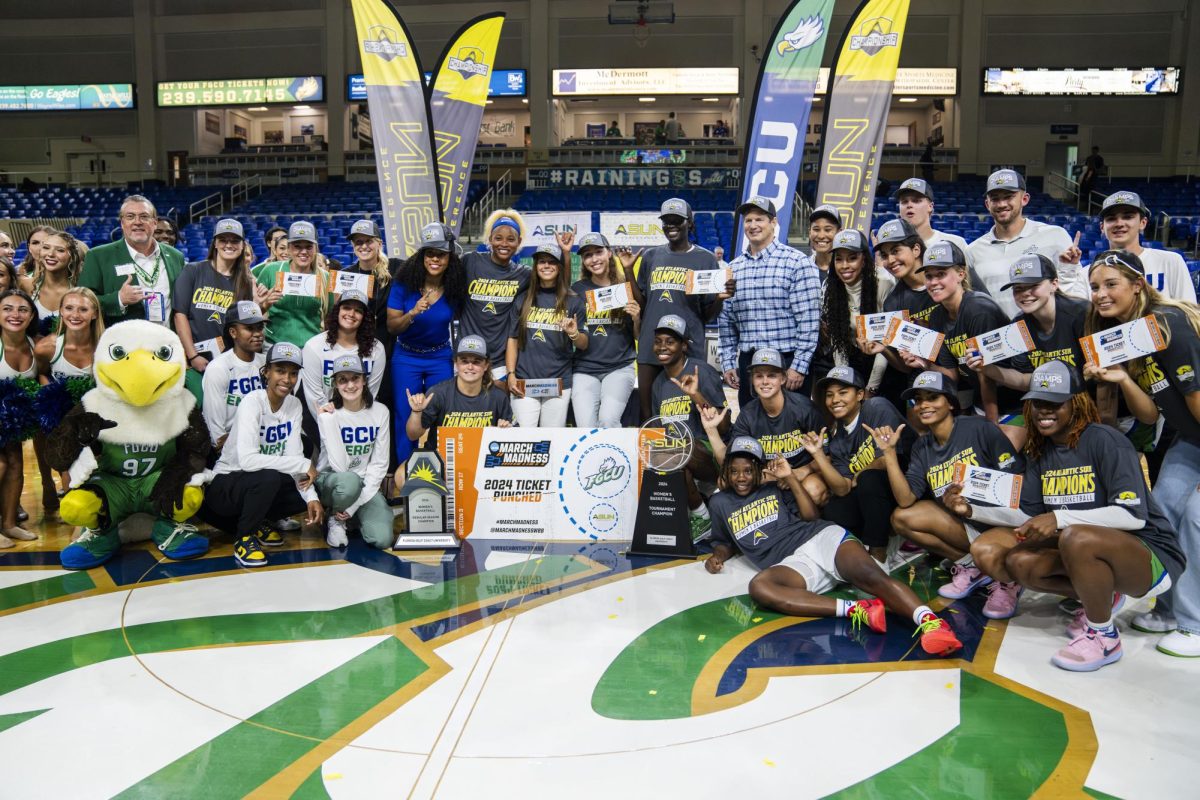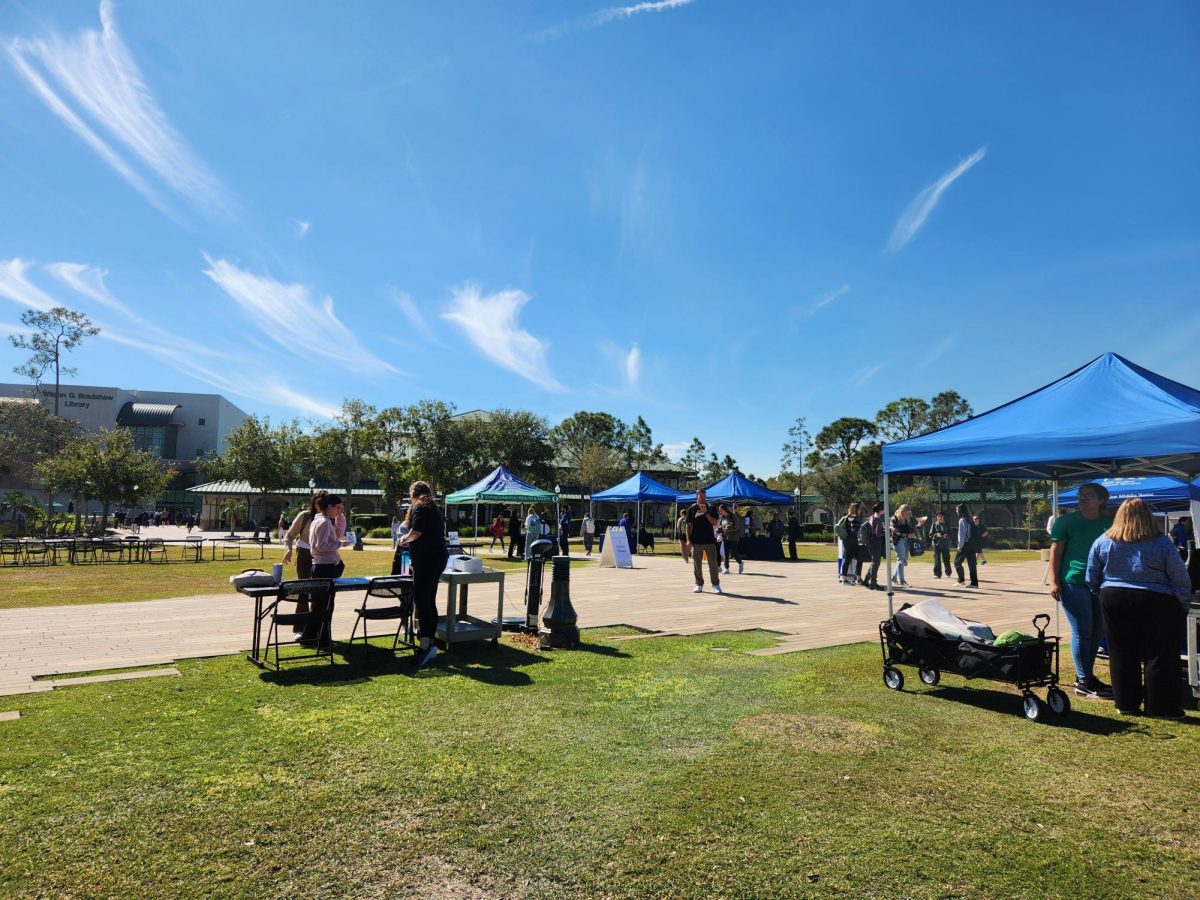Every Florida Gulf Coast University student will be introduced to the Earth Charter at the point he or she takes the University Colloquium class. Yet how well the students understand FGCU’s relationship to the charter as a signed affiliate is unclear, said Dr. A. James Wohlpart, dean of undergraduate studies and former associate director of FGCU’s Center for Environmental and Sustainability Education (or CESE).
One area of confusion may be the difference between organizations that are charter affiliates and those that have signed on as charter endorsers. The Earth Charter Commission’s website clarifies that endorsers pledge to work toward the achievement of the charter’s principles and values and intend to cooperate with other organizations toward that goal. Affiliates, on the other hand, are organizations that acknowledge a shared vision with the commission and agree “to be an active source of Earth Charter information and activity in their country,” according to the organization’s website.
As an affiliate, FGCU has a loose agreement wherein it acknowledges a commonality or like-mindedness with some of the goals of the charter, Wohlpart said. The CESE’s website uses somewhat stronger language, with a statement that the University became an affiliate “in recognition of the fact that this global charter encompasses FGCU’s mission.”
The charter was developed with the greatest participation and inclusiveness ever seen in the preparation of an international document, according to the commission’s website. The CESE website adds the following details regarding the process of drafting the charter: “Thousands of individuals and hundreds of organizations from all regions of the world, different cultures, and diverse sectors of society participated. The charter was shaped by scientific experts, government and civil society leaders, students, and representatives from indigenous groups and grass-roots communities.”
The Earth Charter’s primary focus is to protect the environment by encouraging sustainable human development and lifestyles. However, the document acknowledges these goals cannot be achieved without addressing the negative effects of factors such as poverty, human rights violations and war on the planet’s ecological systems.
Acceptance of the charter as a so-called “soft law document” — an ethically guiding educational document such as the Universal Declaration of Human Rights — is growing among governments and is serving to influence the development of legally binding “hard laws,” according to the commission’s website.
With its list of 16 items addressing topics as seemingly divergent as ecology, social justice and democracy, the Earth Charter goals may sound either impressively comprehensive or unbelievable and unachievable to students. It may be a little of both, as it was designed to be a guiding framework, Wohlpart said. “The way it was set up, it’s an idealistic document, but you want something idealistic if you’re setting a goal, a bar..
“They don’t expect every entity to live up to it all. But is it a pathway? As such, yes,” he said.
Colloquium is not the only class at FGCU where students might encounter training about the charter. “I use it for one paper in my Environmental Education class,” said Peter Blaze Corcoran, director of CESE.
A mini-grant program offered by CESE provides the opportunity for faculty members to incorporate Earth Charter projects into their classes. Thirty-two grants totaling about $20,000 were approved between 2010 and 2013, and approximately two-thirds directly impacted classes, according to the center’s website. “It’s been an excellent way to expand the students’ knowledge of the Earth Charter, and it has worked well,” Wohlpart said.
Grant projects have included the following offerings for FGCU students: the development of cross-cultural interdisciplinary learning classes involving travel to places such as St. Lucia, Costa Rica or Guyana; special topics classes about sustainability and ecology; the redevelopment of curriculum to align classes in rhetoric, composition, organic chemistry, engineering, humanities, biology and educational diversity to an Earth Charter perspective.
“Lots of instructors are trying to embrace the Earth Charter in their teaching,” said Dr. Maria Roca. “For some it is a shared interested, and for some it is a passion.”
Roca epitomizes the latter group.
Her office is an unlikely habitat for the professor who taught the one FGCU class focused completely upon the Earth Charter. Roca is a member of the communication faculty rather than a part of the ecological sciences or biological sciences departments that would seem the more likely home for a class about the international ecological document. Her office door and walls are decorated with at least seven different posters and bumper stickers related to the art of listening. Spirituality symbols and quotes of world faiths share the walls with family and pet photos, and the desks are piled almost as high as Roca’s head with books and papers that flow into waist-high stacks of the same on the floor. Student art projects from the class, such as a mosaic depicting the Earth made from soda cans and a mobile made from driftwood adorned with origami birds, decorate the exterior of her office.
According to Roca’s course description, her class, Living the Earth Charter, features the expected group discussions but also utilizes meditation, spiritual readings and artwork assignments as novel means to learn about the charter. The intent is to find practical ways to apply the principles of the charter to daily life, both for the individual and for the communities in which they live. Particular focus is given to learning why and how the world is changing and examining how a student’s cultural values may assist or impede implementation of the principles.
Roca makes sense of why a non-scientist teaches the Earth Charter class and approaches it from a spiritual viewpoint. “We care for what we love,” she said, “and we need to explore that determination before can we take action.”
The class delved deeper into the history of the charter than was possible in the short introduction to the Earth Charter taught in the Colloquium classes, exploring the difficulties involved in reconciling different world cultures’ viewpoints on divisive topics such as hunting or gender equality.
Roca taught the Earth Charter class for several semesters, but is now focusing more on a class in contemplative practices that she describes as being the sister class to the one focused exclusively on the charter.
The University varies as to how well it is living up to its status as an affiliate of the Earth Charter, Roca said, with some corners doing well. She gave CESE, the University Colloquium and Environmental Humanities classes, the Wings of Hope program and the Food Forest as positive examples.
Additionally, Corcoran cited Foundations of Civic Engagement and Environmental Biology of Southwest Florida as examples of other classes that incorporate aspects of the charter.
Roca said, “It isn’t something we should teach in a course or two but should be something we live, and I’d like to explore that at an institutional level.
Every new faculty and student and staff member should get a copy (of the Earth Charter) in their packets, and an hour workshop, like we do for other things, saying philosophically we believe in this.”
Instructors at FGCU continue to find ways to incorporate the charter and its principles into their classes in such ways that even CESE does not have a comprehensive list of every class a student may take to learn about the Earth Charter. “There are a lot of teachers who use it at their discretion,” Corcoran said.
Roca said FGCU’s Earth Charter affiliate status should be celebrated, as only a small percentage of universities worldwide had signed the charter. “We’re special and unique,” she added, “and it’s not a punishment — it’s a joy.”




